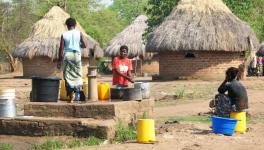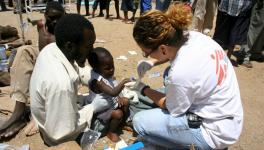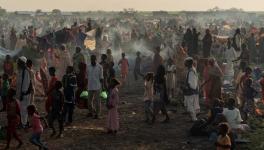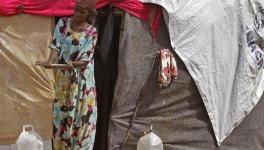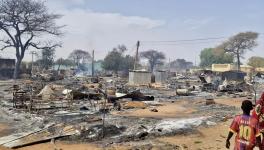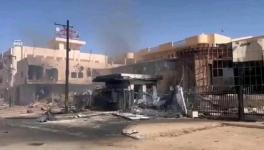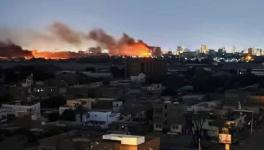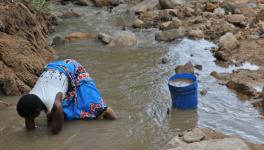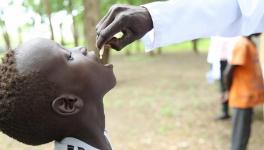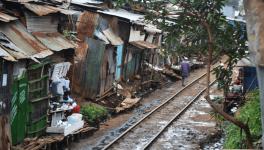One Year of War in Sudan Accompanied by Dengue Concerns
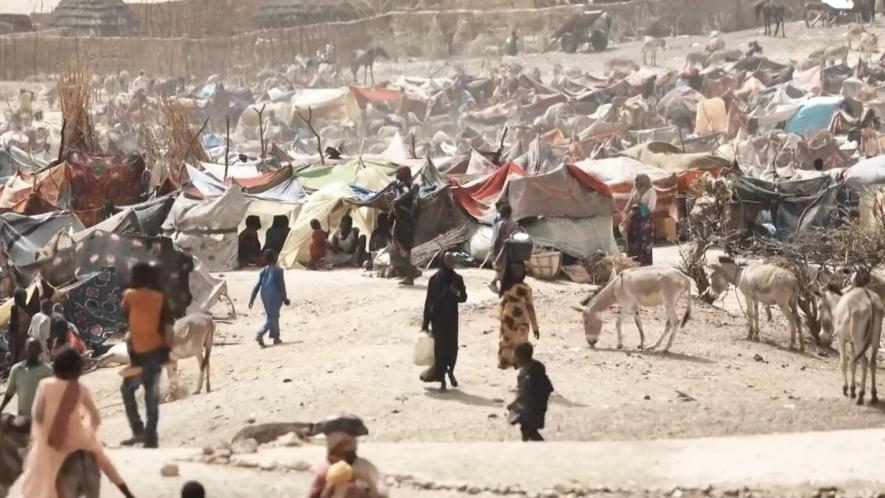
Sudanese refugee camp in Chad, May 16, 2023. Photo: Henry Wilkins-VOA / Wikimedia Commons
Dengue fever has added to the list of concerns faced by Sudan, more than a year after the beginning of the civil war that has caused one of the world’s largest displacement crises.
Public health authorities reported 9,000 cases of dengue by April 18, 2024, with more than 60 people killed by the disease. While the Ministry of Health has announced it will take steps to contain the spread of infections, the prospects remain uncertain, considering that most of the health and sanitation infrastructure has been affected by the civil war waged between the Sudanese Armed Forces (SAF) and the Rapid Support Forces (RSF).
According to the World Health Organization (WHO), at least 70% of health facilities in hard-to-reach areas are non-operational, leaving people without access to medical treatment. Estimates by Doctors Without Borders (MSF) go even further, approximating that the percentage of overall functioning health capacities is only 20-30%. “There is extremely limited availability of healthcare for people across the country,” Jean Stowell, MSF’s mission head in Sudan, said earlier in April.
More than 60 attacks on healthcare facilities and personnel have been recorded in Sudan, although this is likely an underestimate. And this is not all: health delivery is becoming incredibly difficult due to a chronic shortage of medical supplies, exacerbated by a blockade imposed by the official authorities. The circulation of humanitarian aid has been heavily weaponized by both warring parties in Sudan, with the government attempting to stop supplies from reaching places where they could be taken by the RSF, making the people dependent on them collateral damage; and the RSF looting warehouses where supplies are stored, once again depriving the population of the possibility of accessing them.
The combination of direct violence and limitations to aid has meant that some states, including Darfur, have not received medical supplies for the past year, WHO Director-General Tedros Ghebreyesus recently warned. Health workers in Khartoum’s hospitals have also sounded the alarm about nonexistent supplies. “Our biggest challenge is the scarcity of medical supplies,” MSF doctors said. “We’ve run out of surgical equipment, and we are on the brink of stopping all work unless supplies arrive.”
Some hospitals have already run out of essential medicines, including artesunate, used in the treatment of malaria. “Patients are dying due to violence-related injuries and preventable illnesses; children are perishing due to malnutrition. Vaccines are running out, and there have already been outbreaks of deadly diseases such as cholera and measles,” Christos Christou, MSF International President, said of the situation.
“Across Sudan, women are dying because of complications during pregnancy or childbirth, and patients with chronic diseases are dying because they are running out of medication,” Christou stated.
Another major concern is represented by the high rates of hunger. Reports from North Darfur warn that almost a quarter of all children are acutely malnourished, and as many as 40% of pregnant and breastfeeding women face the same health risk. Compromised health status increases the vulnerability to usually treatable diseases like cholera, of which 11,000 cases have been reported.
An immune response weakened by malnutrition can easily make cholera, as well as other infectious diseases, deadly, a fact that has only added to the long list of concerns faced by women in Sudan every day. The increase in gender-based violence has been one of the most devastating side effects of the war, with women abducted, sold into slavery, and raped, as described by health activist Rawia Mahmoud during the 5th People’s Health Assembly.
Despite the extent of violence and atrocities witnessed in Sudan, the situation has received very little international response—shockingly little, as Christou put it. Response appeals coordinated by United Nations agencies remain grossly underfunded, and, despite new initiatives launched by the likes of France on the mark of the first year of the war, they will hardly bring any significant resolution to the situation if not accompanied by a firm dedication to achieve peace.
People’s Health Dispatch is a fortnightly bulletin published by the People’s Health Movement and Peoples Dispatch. For more articles and to subscribe to People’s Health Dispatch, click here.
Get the latest reports & analysis with people's perspective on Protests, movements & deep analytical videos, discussions of the current affairs in your Telegram app. Subscribe to NewsClick's Telegram channel & get Real-Time updates on stories, as they get published on our website.









